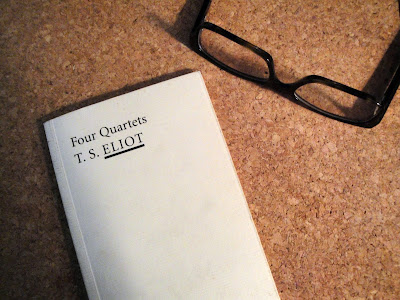
"I will tell you a story that will make you believe in God", the old man tells the narrator, in the opening chapter of Yann Martel's novel, 'Life of Pi'.
Let me tell you a story that will make you believe in Kindness. Well, probably just for a short while, before the soot of skepticism settles down again :)
..........................................................................................
So my friend's cousin's 84-year-old father-in-law goes missing one fine morning, from their flat in Delhi. His wife had died a few weeks ago, and he'd gone into depression. They had not taken him for the cremation because the cemetery was far away, and he was unwell. He'd walked out with no money, and no sweater, in the freezing January cold. Searching, police complaints, media ads, nothing yielded any results. The son and daughter-in-law go to pieces, not knowing whether he was dead or alive, or suffering. The only clue they get is from the cemetery watchman who said that yes, an old lost-looking man with no sweater had come there a couple of days ago.
A few days later, an auto rickshaw driver finds the old man fallen down at a bus stop, dehydrated, frozen. He takes him to a hospital which gives him basic first aid, but refuses to keep patients "with no bystanders". The police arrives, and tries speaking to the old man. He has no idea who he is, where he is from, where he needs to go. After many futile attempts, the policeman tells the rickshaw driver (who waited all this while) to just drop him at the bus or railway station, he'll find his way back.
He cannot bring himself to do that. What if this had happened to my own father, he thinks, what would he do? So he takes the old man home. The auto driver stays in a slum, in a small room he shares with 4 other rickshaw drivers. He makes place for the old man, gives him a blanket, and a share of his own meagre meals, for the next 2 weeks. He tries speaking to him every day, but the old man spoke hardly any Hindi, and the rickshaw man does not know English. And anyways, the old man does not even remember his own name, he is lost in another world.
In the meanwhile, the young man moves heaven and hell, trying to find ways of finding the old man's relatives, but has no idea what to do. And then he asks this lady, who works in an IT company, one of his regular passengers, if she could come home and speak to the old man in English. She agrees. She spends a lot of time cross-questioning the old man - all he knows is that he used to live with his son and daughter-in-law, and that he has two grand-kids. She asks him their names. The old man suddenly remembers one of them, "Govind", he says. And then he remembers that they stay in Govind Apartments. That was it, he retreats into silence again.
The lady googles for Govind Apartments in Delhi, and finds so many of them - Delhi is a vast, sprawling metropolis where millions live. She makes a list of all the Govind Apartments in Delhi, with their addresses, and gives it to the rickshaw driver. And tells him that if he does not find the old man's family, she will put him at an old age home that she knows.
The young man does not want to give up easily. Every day, for a few hours, he takes the old man in his rickshaw, to one Govind apartment after the other, across the huge city, driving hundreds of kilometers up and down, and asks the Security guards at each gate, whether there was an old man missing from there.
After many days, he finally lands up at the correct apartment block. The Security guards immediately call his son. The old man is back home, though still disoriented, with hardly any recollection of the weeks that had gone by.
The overwhelmed son tries to pay or recompense the rickshaw driver for all the money, time and care he has so willingly spent on his father for 2 weeks. He does not accept even a penny. "If this was my father, would I not have done so much for him? Just because he's your father, not mine, should I do any less?" - was the simple logic that made this a most obvious thing for him. He could not imagine taking money for that.
He goes back to his slum, leaving behind a stunned family, forever marked by a kindness that cannot but transform the way they view the world.
………………………………………………………..
While millions sit in spirituality sessions, struggling to understand "Universal Soul", "Universal Consciousness", the "Spirit that links all Sentient Beings", our inter-connectedness is seen, and preserved, in the most unexpected of places, as the most obvious and ordinary thing.
I often think - every day, in the mad rush of our busy lives, we cross people who could’ve changed our lives, if only we could hear their stories, or see the lamps that light them from within.
* "I was a Stranger, and you took me in": from The Bible, Mathew 25:35










